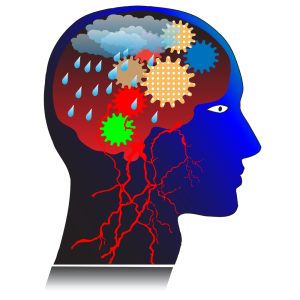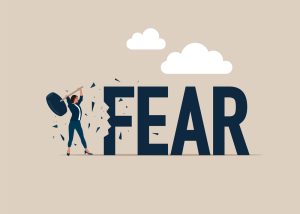 Written by Ricky Bell
Written by Ricky Bell
Healthcare organizations lose a significant portion of their revenue each year because of preventable claim denials. Even highly experienced billing teams struggle with the increasing complexity of payer requirements, regulatory changes, fragmented documentation, and rising administrative burdens. As margins continue to shrink, providers are no longer looking at denial management as a back office activity. It has become a core financial priority, directly linked to the long term sustainability of medical practices and healthcare systems.
Over the past five years, the most forward thinking organizations have shifted toward technology enabled denial prevention. Instead of reacting after claims are rejected, they have incorporated tools that provide the revenue cycle with visibility, predictive insight, and structured accountability. In this article, we will discuss how healthcare companies can improve their denial management systems by using technology, increasing documentation accuracy, and applying workflow strategies to minimize unpaid claims.
Why Denial Prevention Needs a Technology Focus
Revenue cycle teams continue to face challenges that manual processes alone cannot solve. Payer regulations are continuously changing, there is a differentiation in authorization needs for different insurance plans, and even a little inconsistency in documentation can result in costly redoing of the work. When the review of such tasks depends entirely on humans, the load can become too much to handle.
The technology does not substitute for the skills of the clinical and administrative staff. It instead supports the professionals by recognizing trends, pointing out the claims with the most risk for being denied, and providing the teams with very timely information that would be hard to track through manual methods. A well implemented digital strategy can help organizations prevent denials before they occur, reduce administrative strain, and improve overall financial performance.
Understanding the Most Common Denial Drivers
Organizations need to identify the reasons that lead to claim rejection before they can enhance denial management,. Although these reasons are different in every case and they depend on the specialty, payer, and the patient population, the most common ones are the following:
- Lack or insufficient clinical documentation
- Wrong or obsolete patient eligibility data
- Coding mistakes that do not represent the clinical encounter
- Nonexistent prior authorizations
- Claims submitted after the deadline
- Billing for the same item or service twice
- Incorrect use of modifiers
- No justification for medical necessity
These problems have been around for a long time. The only differences are the number of claims, the rapidity of payer transformations, and the mounting pressure on revenue cycle teams. Cutting-edge technology offers a degree of accuracy and immediate accessibility that empowers teams to resolve these problems at an early stage in the workflow.
How Technology Strengthens Key Stages of the Revenue Cycle
1. Front End Eligibility and Authorization Checks
Many denials originate long before claims reach the billing team. The front desk and intake departments have a big part in getting the right information. The use of automated eligibility verification tools enhances the reliability of this process. They give instant updates about the coverage, the status of the deductible, the referral requirements, and the rules of authorization.
Some organizations also integrate automated authorization systems that help staff track required approvals before services are delivered. These tools reduce confusion created by payer specific rules and help clinical teams remain compliant.
2. Clinical Documentation Improvement
Documentation quality directly affects coding accuracy and ultimately determines whether claims are reimbursed. Technology that supports documentation improvement can guide clinicians with reminders, templates, and real time prompts that reduce ambiguity. It does not interfere with clinical judgment. Instead, it ensures the documentation correctly supports the care provided.
Natural language processing tools, structured templates, and integrated EHR prompts all help reduce missing information. They also support coding teams by making it easier to translate clinical details into accurate billing codes.
3. Coding Accuracy and Compliance
Manual interpretation of thousands of pages of clinical notes by coding teams leads to mistakes. Coding tools can assist in spotting the gaps that exist between the diagnoses, procedures, and documents. They bring to attention the inconsistencies that have a risk of causing payer audits or denials. The use of these systems speeds up the whole coding process, accuracy is improved, and costly appeals are minimized.
Organizations that use technology supported coding systems report lower denial rates, fewer compliance issues, and better communication between coding specialists and clinical teams.
4. Predictive Analytics for High Risk Claims
Predictive analytics tools analyze past claims data and find the reasons leading to refusals. They reveal areas of high risk, trends related to payer, and documentation gaps that happen repeatedly. Thus the teams can act before the claim goes to the payer. For instance, when a player regularly rejects certain procedures due to problems with modifiers, predictive tools can bring such claims to the attention of the secondary review process. This focused strategy not only saves time for the organization but also greatly increases the percentage of clean claims.
5. Streamlined Claims Follow Up
Manual follow up is one of the most time consuming tasks in the revenue cycle. With automated workflows, denial categories are routed to the correct staff member, response deadlines are tracked, and updates are recorded in a central dashboard. This avoids missed deadlines and improves accountability across the team.
Using software solutions, healthcare organizations can automatically route tickets, monitor denial trends, and evaluate staff performance without overloading the administration. The software solutions bring order to the chaos and allow the healthcare organizations to cut down the aging of denial.
6. Data Driven Appeals Management
An effective appeals process depends a lot on unambiguous proof, perfect records and good communication. Technology is the main player in this scenario by gathering related documents, keeping payer rules and offering templates that are in line with the law. Standardized data and transparent processes can make the appeals staff work faster. Organizations may then use this data to identify the denial categories that are the most common or the most costly, and thus direct their efforts towards actions such as training, process improvements or negotiating with the payers. This proactive strategy not only guarantees the long-term reduction of avoidable denials but also the organization’s financial health.
Building a Denial Prevention Culture Across the Organization
Technology alone cannot eliminate denials. The most successful healthcare organizations pair digital tools with a culture of accountability and collaboration. Preventing denial requires participation of various departments like clinicians, coders, billing teams, authorization staff, and revenue cycle management. Some of the main strategies are:
- Cross-departmental meetings held regularly to discuss denial trends and common issues
- Staff training specifically for new payer rules, documentation requirements, and compliance updates
- Collaboration between clinical and administrative teams to verify that documentation meets coding requirements
- Leadership oversight to monitor financial performance and enforce accountability
- Open communication pathways which assure the staff can quickly and easily escalate complex cases
When staff understand how their individual actions impact the revenue cycle, they become active participants in reducing denials. This culture, combined with technology, produces measurable improvements in clean claim rates and overall financial performance.
Long-Term Benefits of Technology-Driven Denial Management
Healthcare institutions employing technology-supported denial prevention methods accrue numerous long-term advantages:
- Increased first-pass claim acceptance rates – utilizing automated checks and predictive analytics errors are reduced, thus faster reimbursement.
- Decreased administrative load – workflow automation relieves staff from monotonous activities and lets them engage in high-value work.
- Better compliance and lower audit risk – organized documentation and coding supervision minimize variances.
- Improved patient experience – correct billing and financial openness lead to trust and satisfaction being built up.
- Sustainable financial performance – stable revenue flow means equitable treatment of staff, investments in equipment and expansion of care services.
Medical billing companies such as Dastify Solutions support these outcomes by offering workflow automation, real-time claim status visibility, predictive insights, and reporting dashboards. Through these tools, a centralized revenue cycle management approach is formed which allows the organizations to handle more claims without a rise in errors or workload.
Conclusion
For effective denial management, the implementation of the strategic mix of organizational collaboration, structured processes, and technology is a must. Manual processes have been rendered unfeasible as a result of ongoing payer regulations and regulatory requirements changes along with the increase in administrative workloads. Technology and structured workflows bring about the needed insight, organization, and consistency to nip denials in the bud.
The combination of an automated eligibility verification process, a documentation methodology and coding support tools, predictive analytics, centralized dashboards, and structured appeals workflows works in favor of the entire revenue cycle as all departments contribute to the success.
An integrated method leads to a better cash flow, greater operational efficiency, reduced administrative burden and quality care for the patients at the same time.
Author
Authored by Ricky Bell, Head of Operations at Dastify Solutions with 9 years of RCM experience. His writing focuses on practical, results-driven solutions for modern healthcare billing.
Please also review AIHCP’s Health Care Management Certification program and see if it meets your academic and professional goals. These programs are online and independent study and open to qualified professionals seeking a four year certification
























